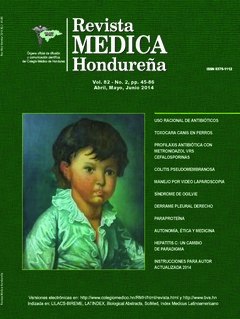Autonomy, ethics and medicine
Keywords:
Ethics, personal autonomy, paternalismAbstract
Background: Ethics, acts as an integral part of medicine from the V century of the Christian era; there are laws in most countries specified as the physician must address ethical issues such as the protection of humans against unauthorized intervention of third parties in any aspect of their environment. Development: Autonomy, is introduced by Kant in ethics.- In Kantian ethics in concept, the term autonomy has a formal sense meaning that moral norms are imposed upon it by humans for its own sake and not for any instance external to it. In bioethics has a more specific meaning and is identified with the ability to make decisions and manage their own body; The theme of the decisions is a source of conflict when it is considered medically that the individual as a patient is not taking the best alternatives that at some point could save their life. Conclusion: In the pursuit of a balanced decision with the patient’s right to exercise their autonomy and as mandated by the code of ethics: to whom he has consulted us to satisfy a need, not we force him to violate his own convictions.
Downloads
332




